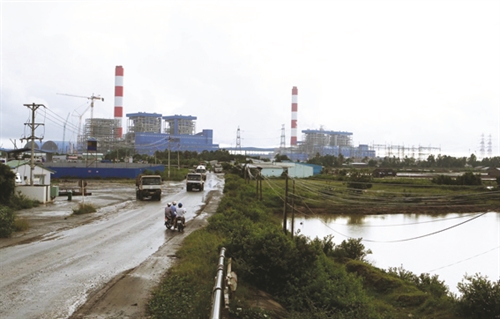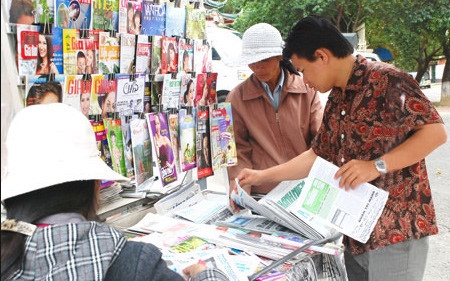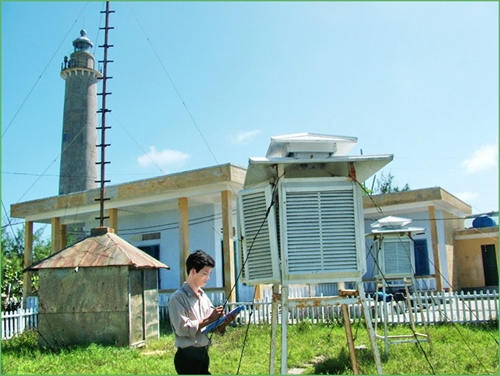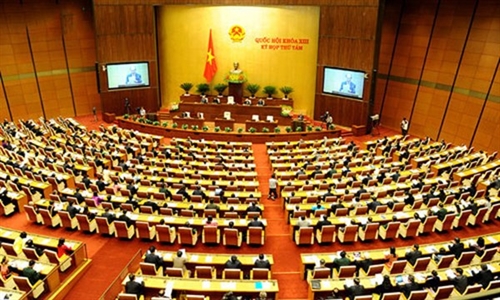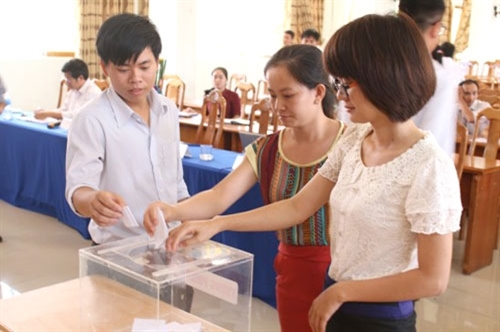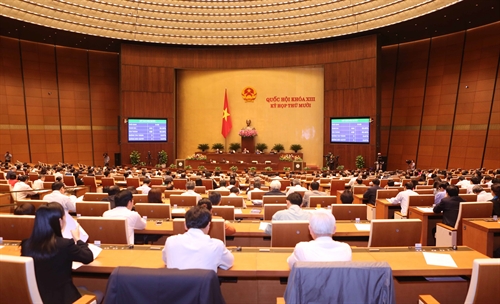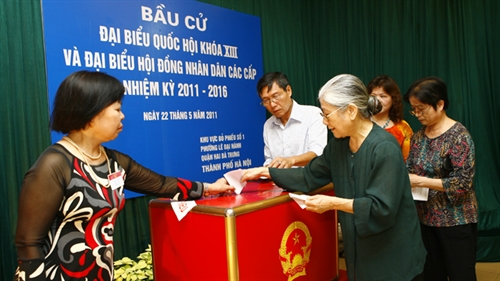Coming into force from January 1 next year, the Law on Press (the Law), which was passed last April, provides a legal basis to facilitate press development in a healthy, active and effective manner in response to the country’s renewal and international integration process.
The Law, which has six chapters with 61 articles, clearly defines citizen’s rights to freedom of the press and freedom of speech in the press. It regulates the organization of press agencies, implementation of press activities and, at the same time, defines rights and obligations of agencies, organizations and individuals participating in or related to press activities.
Compared to the 1989 Press Law and its 1999 amendments, the Law contains many new provisions.
The most noteworthy content of the Law is the provisions specifying citizens’ rights to freedom of the press and freedom of speech in the press.
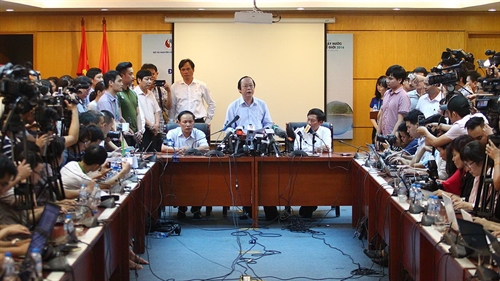 |
| The State will create favorable conditions for citizens to exercise their rights to freedom of the press and freedom of speech in the press__Photo: Internet |
As prescribed in Article 10, citizens are entitled to create journalistic works, provide information to the press, give feedback on information published on the press and access press information. Citizens may also associate with press agencies in producing journalistic products and print and distribute printed newspapers.
Article 11 clearly states that citizens may express their opinions on domestic and world affairs and voice their opinions, criticisms and recommendations on the formulation and implementation of the line, guidelines and policies of the Party and laws of the State. Through the press, they may make complaints and denunciations to Party organization, state agencies, socio-political organizations, socio-politico-professional organizations, social organizations, socio-professional organizations and other organizations and individuals.
The Law goes on to underline that the State will create favorable conditions for citizens to exercise their rights to freedom of the press and freedom of speech in the press, and for the press to properly promote its role. Meanwhile, press agencies will have to publish and broadcast citizens’ recommendations and criticisms, news, articles, photos and other journalistic works that conform with their guiding principles and purposes. Press agencies will also be required to reply or ask competent authorities and persons to reply to citizens’ recommendations, complaints or denunciations. Such replies must be sent directly to the concerned citizens or publicly published.
The Law points to the responsibilities to provide information to the press of organizations and officials.
Under Article 38, provision of information to the press is both a right and an obligation of agencies, organizations and responsible persons. Information may be provided in writing, via news aggregation websites, press conferences and interviews or in other forms and information providers will take responbility for their information. However, there are several cases in which agencies, organizations and competent persons may refuse to provide information to the press, e.g. information being state secrets, information relating to criminal cases under investigation, etc.
As required by the Law, each state administrative agency will appoint a spokesperson who will take charge of providing information to the press on a regular or iregular basis.
Press agencies, for their part, must correctly and accurately use information they receive and clearly indicate the sources of information. Noticeably, press agencies and journalists may only reveal information on information providers when so requested in writing by the chief procurator of a people’s procuracy or chiel justice of a people’s court of the provincial or higher level to serve the investigation, prosecution and trial of very serious or particularly serious crimes.
Based on their own documentary sources, press agencies may publish news on cases which are under investigation and prosecution and pending trial, cases of negative practices or cases showing signs of law violation pending conclusions of competent state gencies. However, they must take responsibility before law for the reported information.
Under Article 56, foreign press agencies and foreign representative missions and organizations in Vietnam may carry out press and press-related activities in the country only after obtaining approval from competent agencies. However, these activities must comply with the laws of Vietnam.
To establish a resident office in Vietnam, a foreign press agency will send a dossier directly or by post to the Ministry of Foreign Affairs or an overseas Vietnamese representative mission.
Similarly, a foreign press agency wishing to appoint a resident correspondent in Vietnam will send a dossier the Ministry of Foreign Affairs to apply for a foreign press card. The validity period of such a card will conform with its holder’s period of operation in Vietnam but must not exceed 12 months.
A foreign non-resident correspondent wishing to carry out press activities in the country will send a dossier of application for approval directly or by post, fax or email to the Ministry of Foreign Affairs or an overseas Vietnamese representative mission. Press activity permits for non-resident correspondents will be granted by the Ministry of Foreign Affairs. When carrying out press activities in Vietnam, non-resident correspondents must bring along their press activity permits and passports.- (VLLF)
